Great Horned Owl Babies Out Of Their Thickson’s Woods Nest
It had been almost three weeks since Bob and I visited Thickson’s Woods Nature Reserve one spring in Whitby, Ontario. We were long overdue for monitoring the baby owls’ next stage of development. When last at the forest, the Great Horned Owl babies had remained safe in the nest, but on this visit, the nest sat empty. It took some serious searching in the canopy of pine trees before Bob’s keen eye detected 3 owls perched near the top of one of them…one adult and the two owlets.
Bob and I had to explore several of the trails in Thickson’s Woods…always a pleasant thing to do…before we actually caught sight of the owls.
The pine tree where we found the Great Horned Owl babies was along the southern edge of the woodlot, completely removed from the nest tree. Young owls move from the nest onto nearby branches at 6 weeks old, and start to fly about a week later. They are, at this point, called fledglings.
One of the Great Horned Owl babies was brightly lit by the afternoon sun, while the other sat in shadow. The adult owl was perched on a higher branch of the tree with its back to the babies.
Before long, the Great Horned Owl babies seemed to become aware of our presence on the forest floor despite our great distance from the tree.
Confident in its own secure location, one fledgling began to actively preen itself. Bob and I remarked on the noticeably long claws on its feet.
Pausing for a brief moment from its grooming, the fledgling regarded its sibling on the lower branch.
When its sibling no longer seemed of interest, the young owl cast a glance towards the western sky.
Then, in a flurry of feathers and wings, the fledgling repositioned itself on the branch. The growth of the wings and flight feathers is remarkable, as can be seen when the bird stretched its wings. The young are not usually competent fliers until they are about 10 or 12 weeks old.
After all that work, the fledgling finally settled down for a rest.
The adult Great Horned Owl suddenly turned its attention to the fledgling on the lowest branch of the three.
It had remained snuggled close to the trunk of the pine tree since we had first appeared on the scene,
but it was coming to life and apparently decided to go for a stretch, too.
The fledgling simply looked like a fluffy ball of fur as it tentatively sidled out along the length of the tree limb.
It handily negotiated the distance using its long talons to grip the bark. I love the feathered legs and feet.
The next thing you know, the young owl splayed itself out on the tree limb and appeared to be basking in the sun now that its rays were finally illuminating that part of the tree.
The adult owl seemed at ease now that her babies were settling down.
Fellow visitors to Thickson’s Woods told us that the owlets have been seen sitting on fallen logs throughout the forest. If only we should be so lucky as to catch them in such close proximity. Our camera lens struggles to reach the distance and fights with the mass of twigs, branches and now leaves that obscure the view of the birds when they are so far removed. The fledglings are so endearing with their downy countenance.
Related:

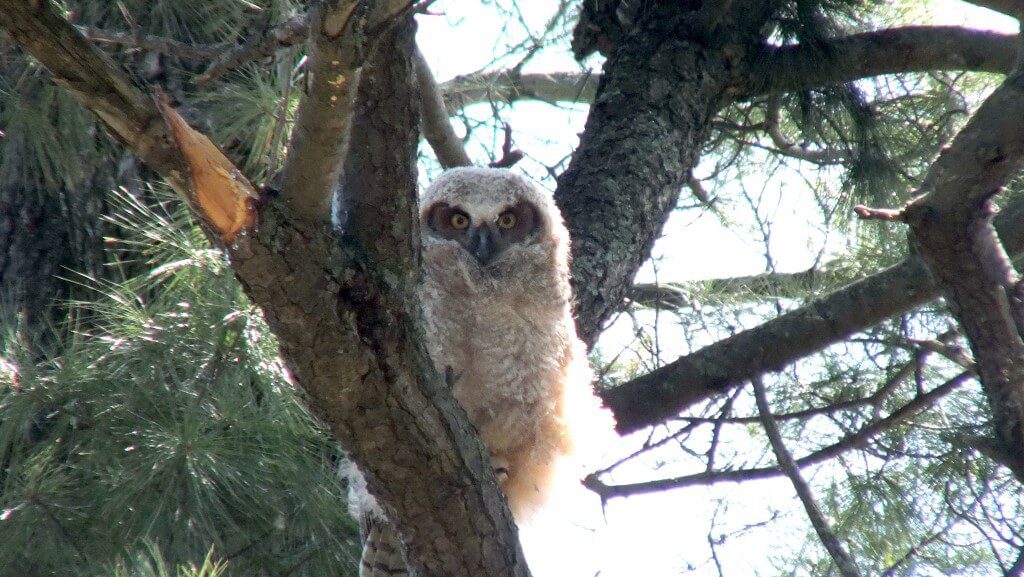
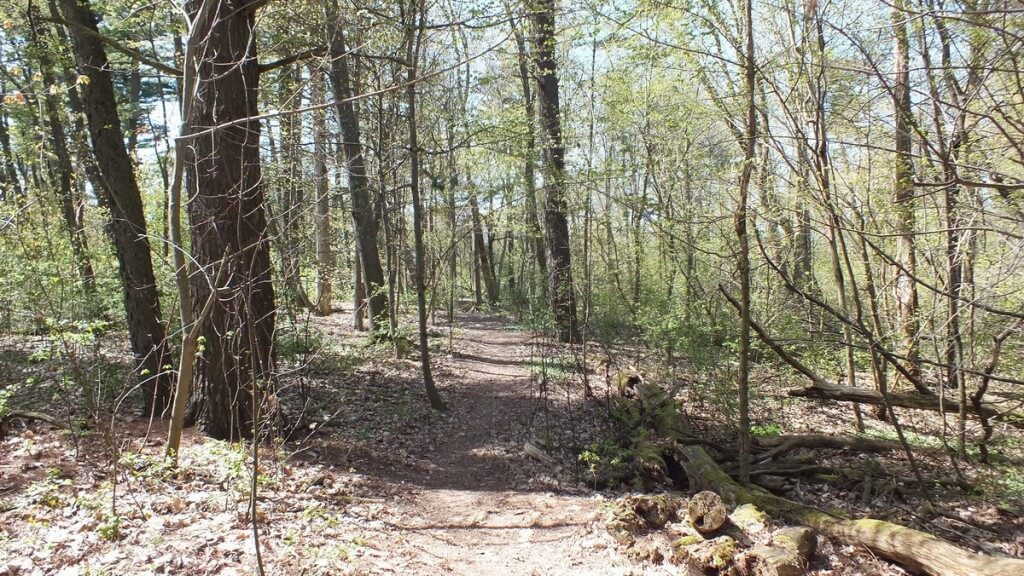
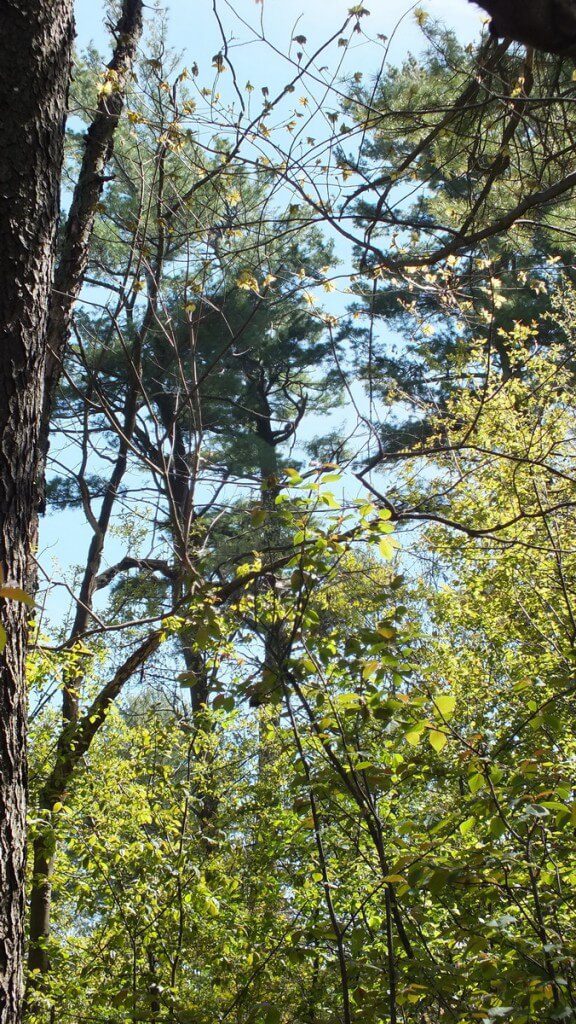
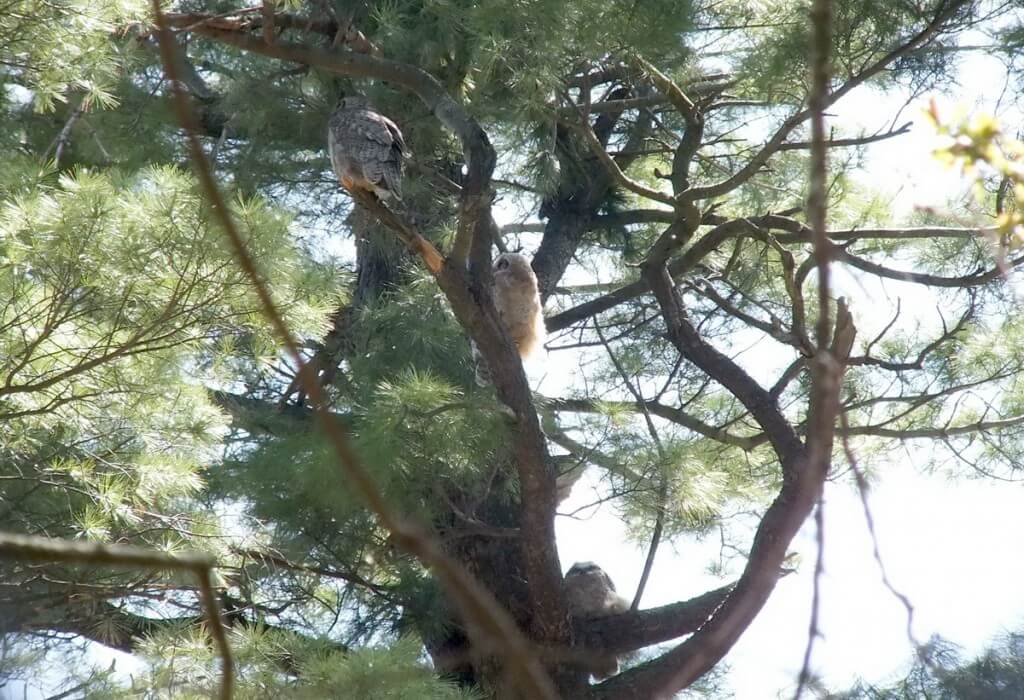
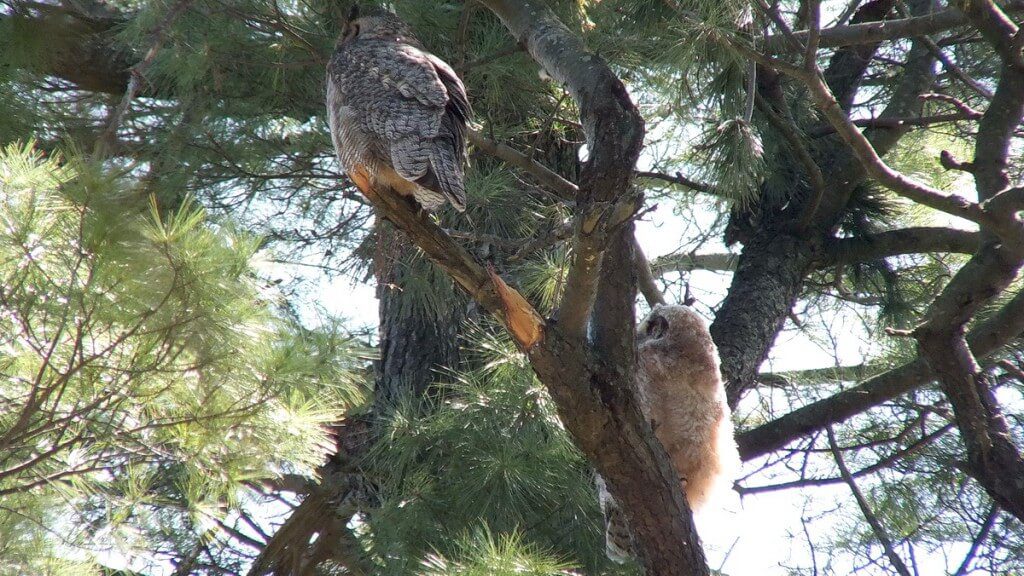
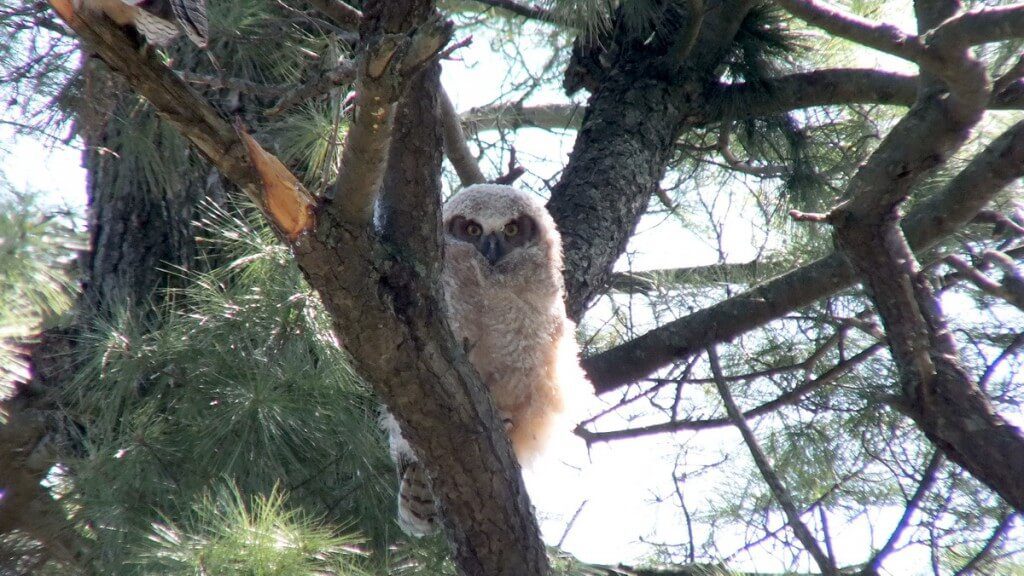
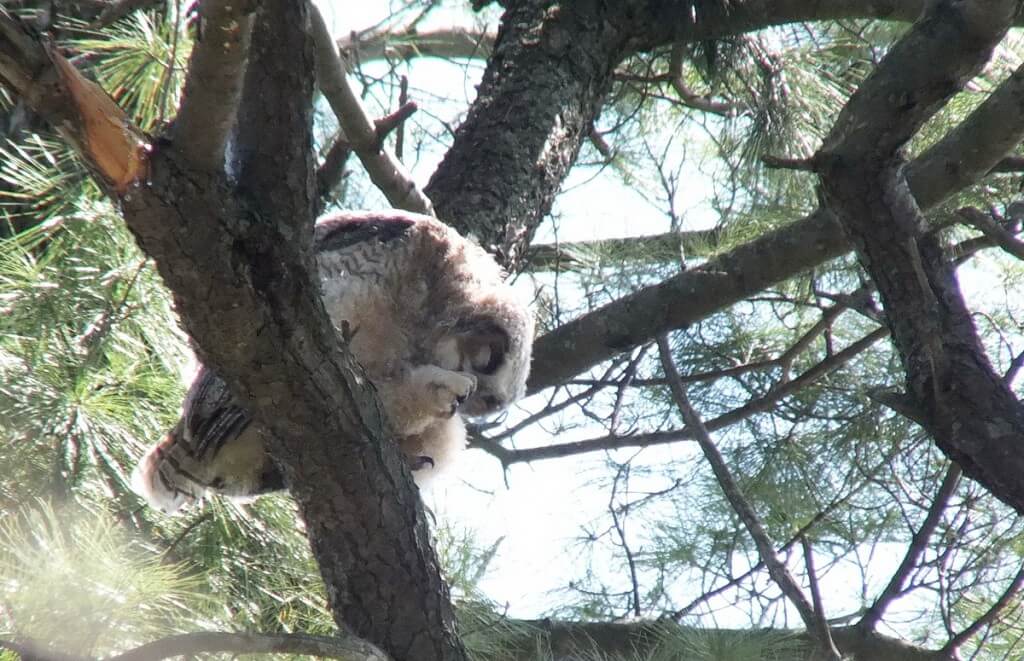
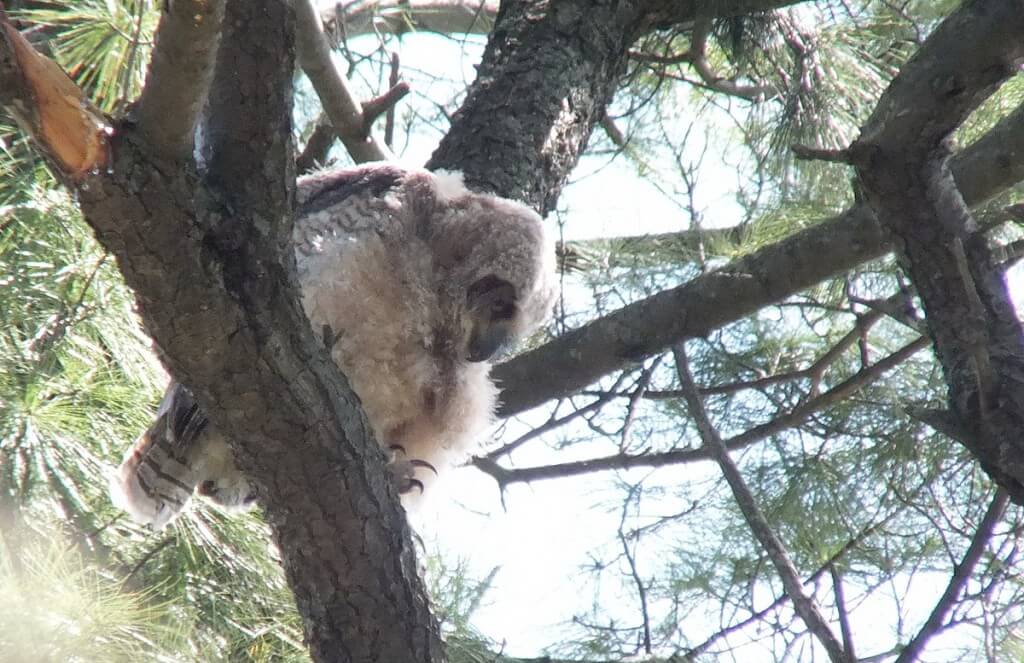
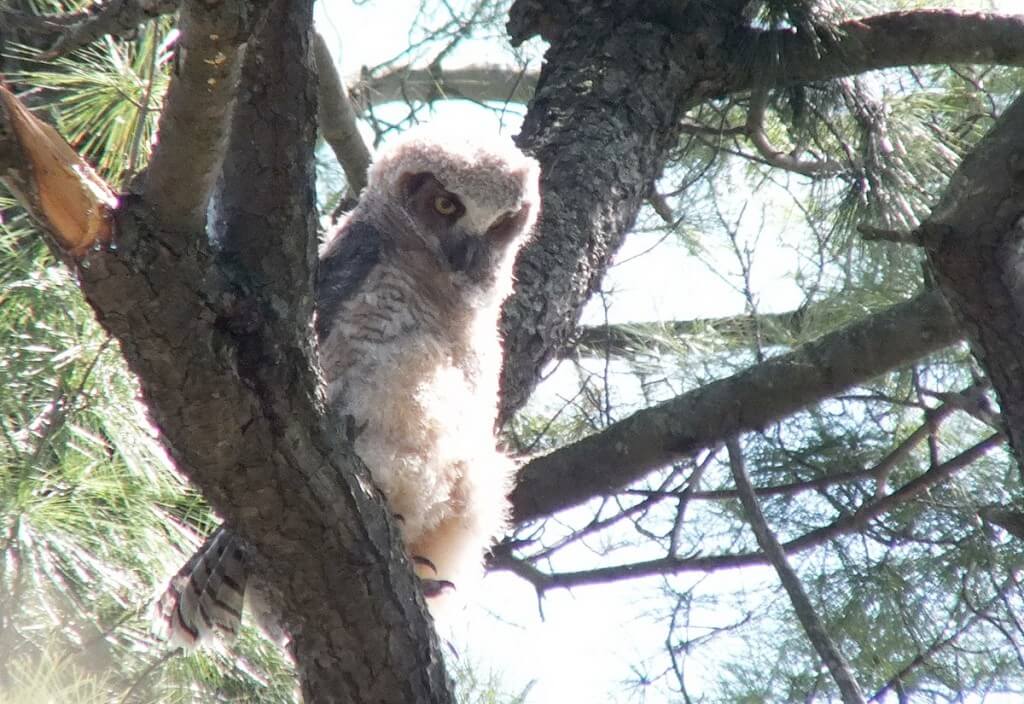
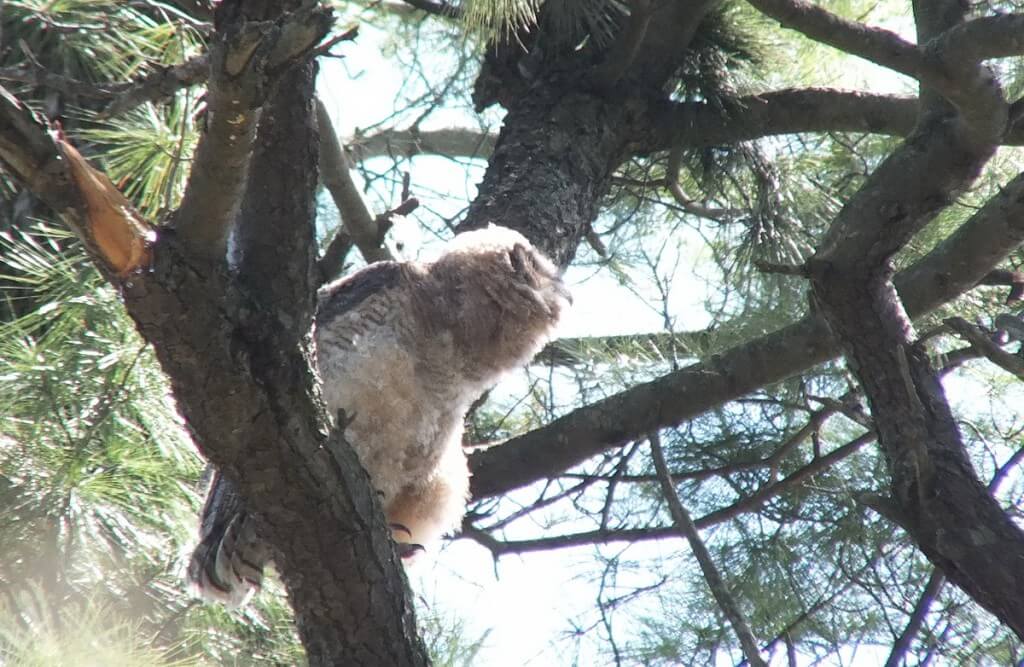
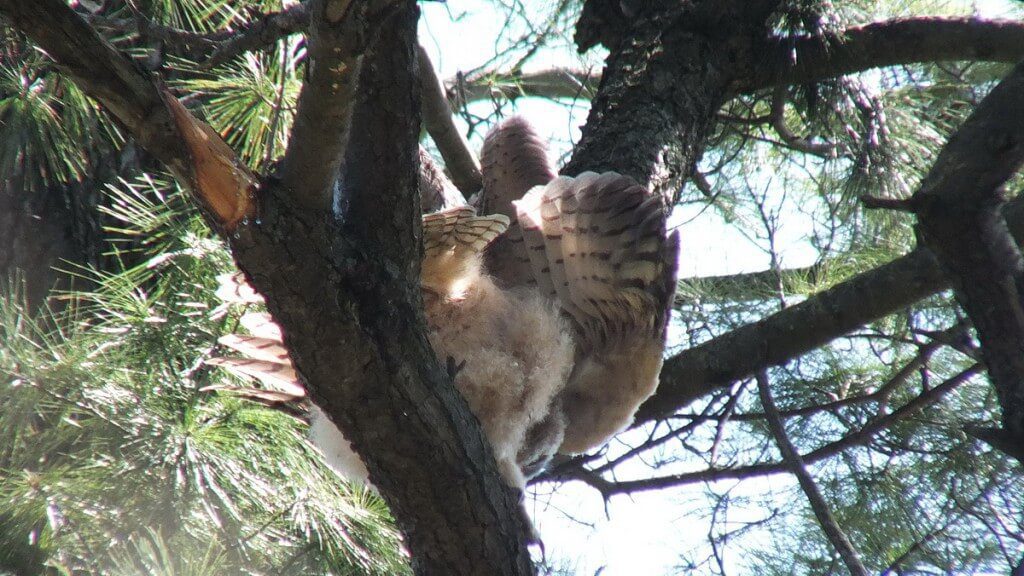
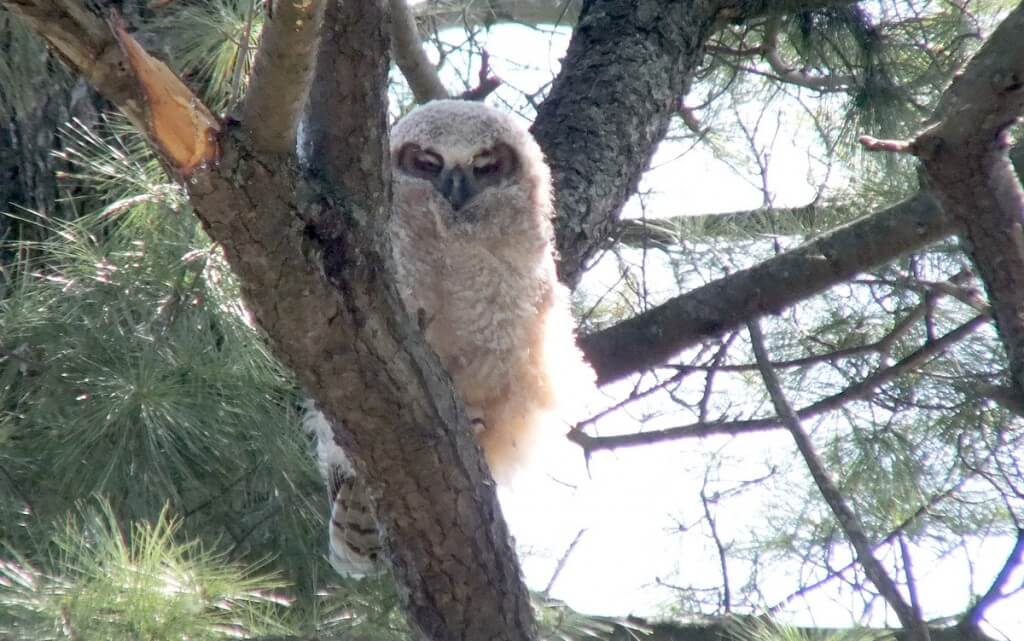
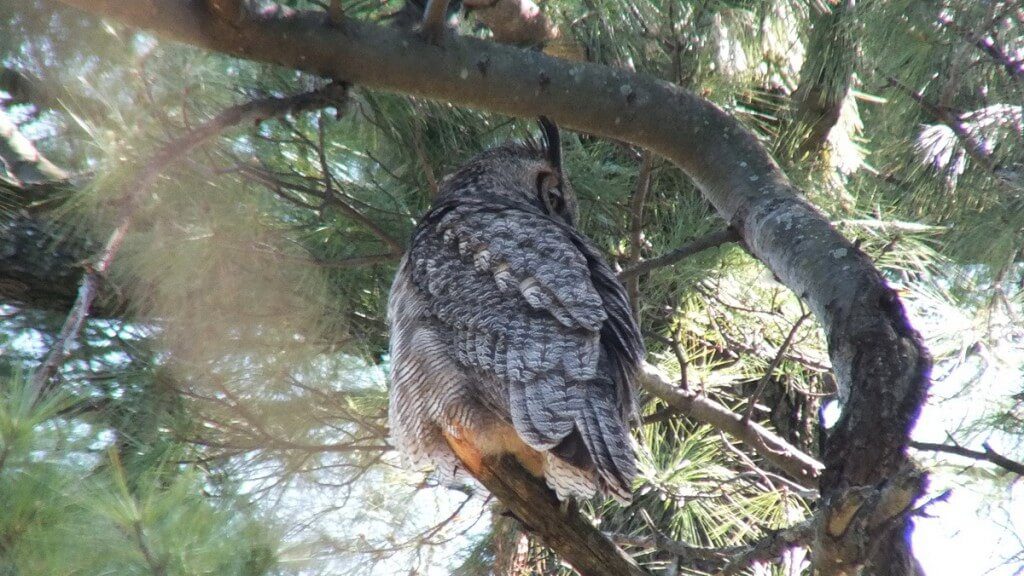
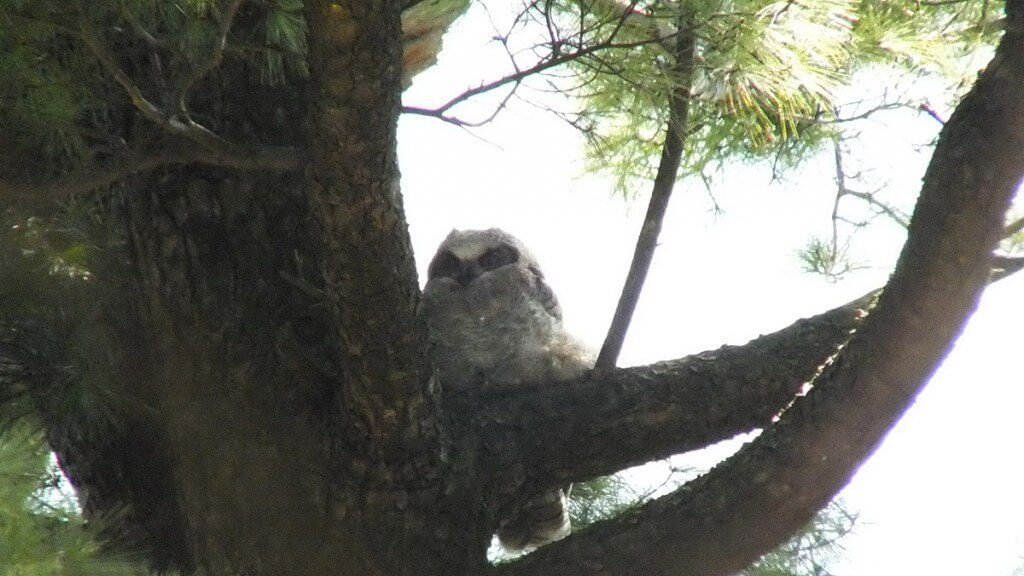
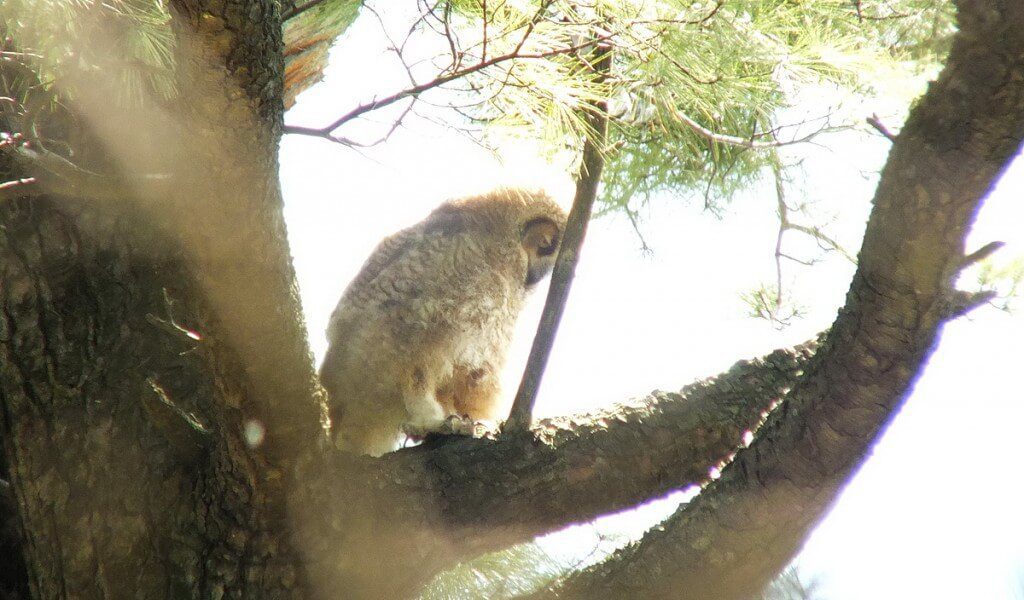
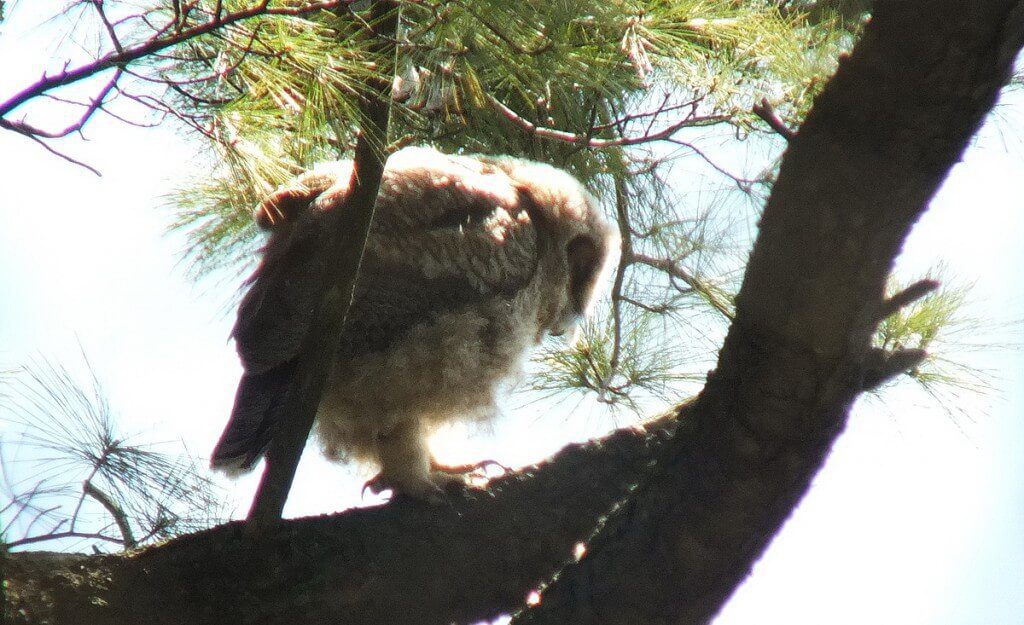
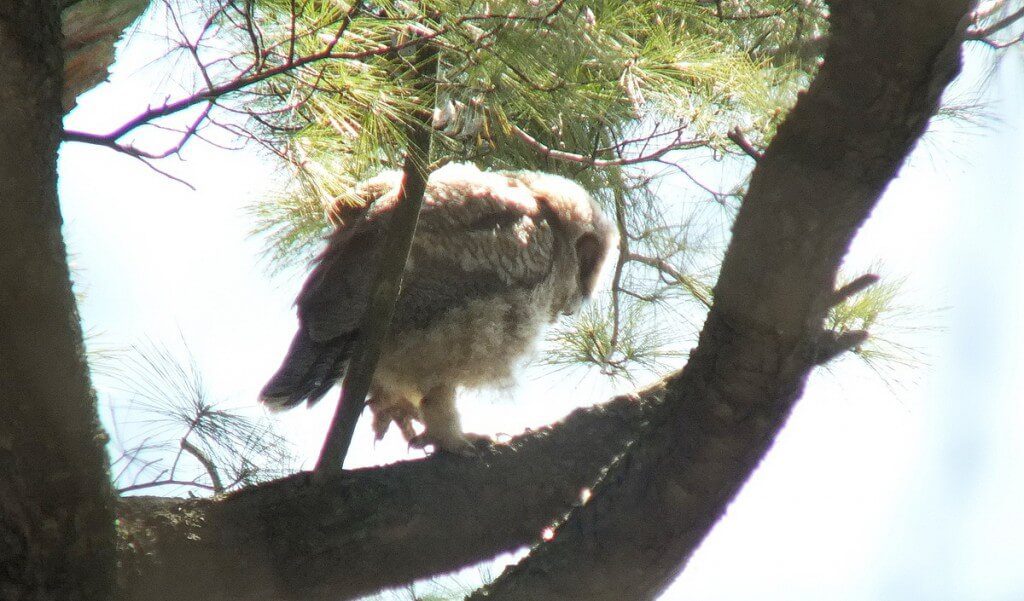
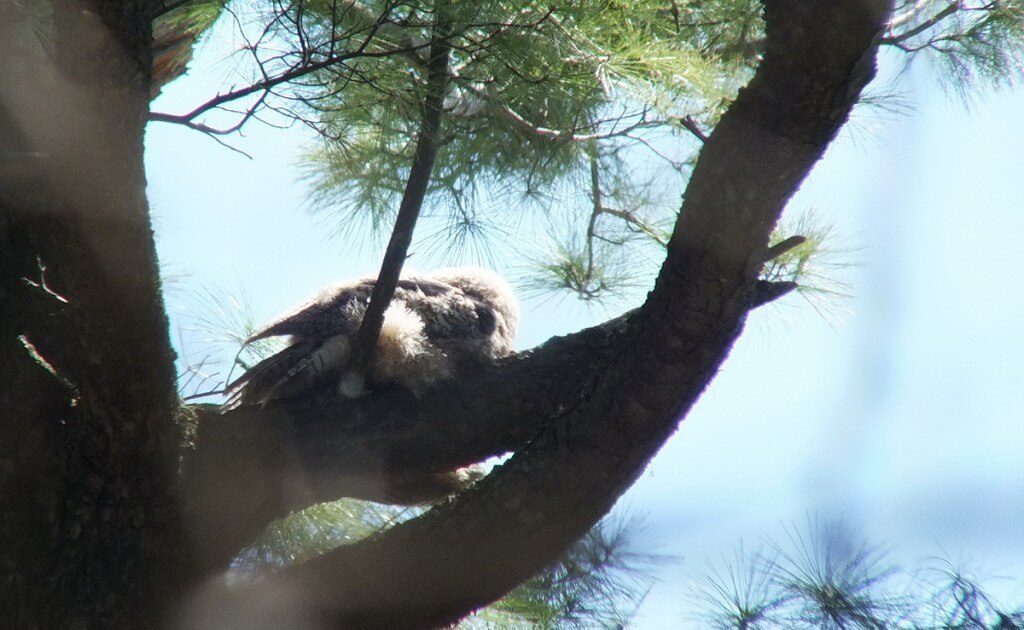
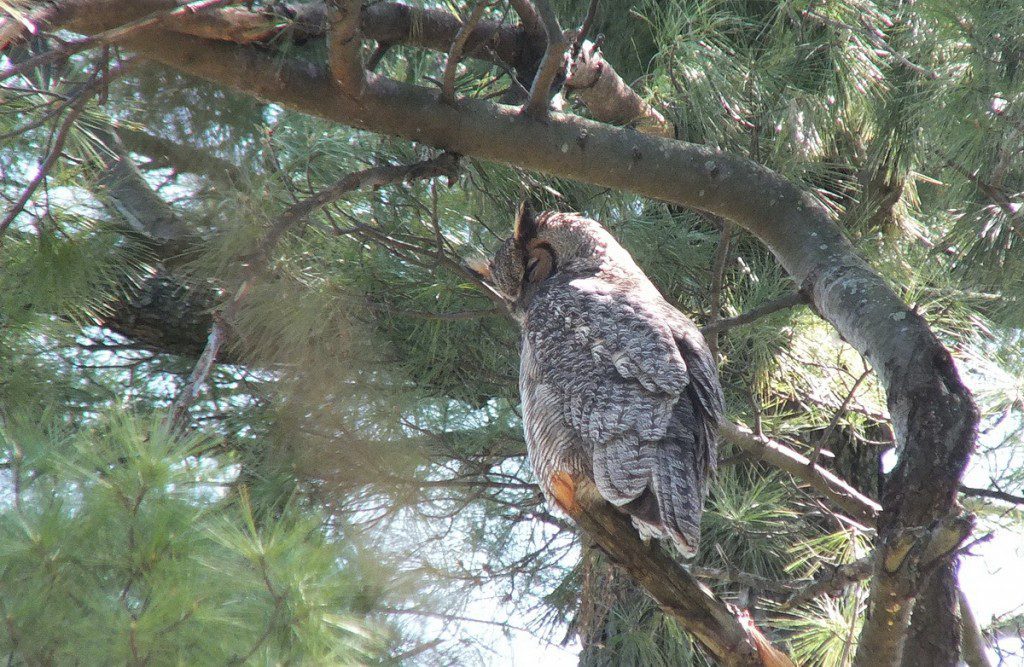
All of your blog postings are so true to nature.I can see how you would have liked to capture the owlets on the fallen forest logs—but i think your photos tell the story of the owlets and their daily environment brilliantly.
Hazel, you are so kind. I always appreciate your comments. We are just glad to share our enthusiasm for nature, and I have to admit that we are slowly becoming bird watching fanatics.
Fantastic!